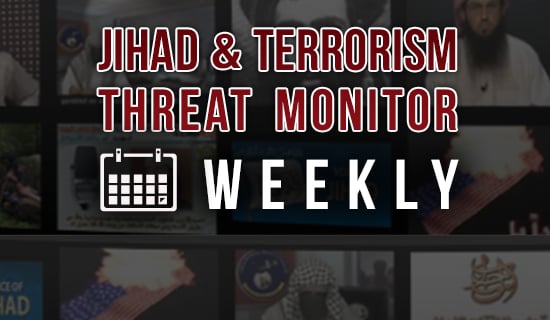In a July 1, 2007 op-ed posted on the Arab reformist website www.Aafaq.org , Sa'd Al-Din Ibrahim, well-known Egyptian sociologist and civil rights activist and director of the Ibn Khaldun Center in Cairo, criticized Hamas, Hizbullah, and Fath Al-Islam for using violence within their own societies.
While he has long been a supporter of integrating Islamist movements into the political process, and while in his op-ed he does not back down from this position, he writes that in light of recent events, it is understandable that people are now asking whether there is a connection between Islam and violence. He also writes to urge moderate Islamists to "defend themselves and their religion" against the extremists.
The following are excerpts from the op-ed:
I Called for Islamist Participation in Elections, Out of Devotion to Human Rights and Democracy
"I can say that I was among the first to call for integrating the Islamists into the mainstream of Arab political life. In an 1987 article in Al-Majalla, I called for the Muslim Brotherhood [to form] a political party – and this was the beginning of the downturn in my relations, which were then good, with Egyptian President Hosni Mubarak… I also called for this on the pages of the most important international newspapers, such as The New York Times and The Washington Post (2004 and 2005).
"And I was the first to call for… cooperation with Hamas after it was elected in January 2006, in free democratic elections, which the Ibn Khaldun Center and the Jimmy Carter Center took part in overseeing. Moreover, I accompanied 40 of my students at the American University [in Cairo], together with researchers at the Ibn Khaldun [Center], and took them three times to Palestine… where we held dialogues with the Hamas leadership – an intensive, week-long dialogue on each of the three trips…
"This public position, which I have held for over 20 years, was not out of love for the Muslim Brotherhood or other Islamists, as claimed by the regime and its agents and by [my] secular colleagues. This call of mine stemmed, and still stems, from my profound dedication to human rights, and from my belief in free democracy for all, whether they be Islamists, Marxists, or atheists.
"In accordance with this principle, I defended, and still defend, the right of Copts, Shi'ites, Muslim reformers (quraniun), and Baha'is to freedom of belief and worship, on a par with [that of] Sunni Muslim citizens. Civil rights are indivisible.
"Among those I have defended were the Shi'ite Muslims of the Gulf, Lebanon, and Egypt… I praised Lebanese Hizbullah's intrepid resistance to the Israeli aggression… last year (2006). But when Hizbullah turned from fighting the foreign enemy to attempting to bring down the legitimate, democratically elected Lebanese government, I did not hesitate to publicly criticize them in the Lebanese newspapers…"
"The Hamas Government's Problems Were Not Just Financial, But Were Also Political, Social, and Cultural"
"This lengthy introduction is meant to prepare the way for criticism of the behavior of the Islamists, who have recently come to power, or shared in it.
"Until recently, the Islamists in general, and the Muslim Brotherhood in particular, would reiterate their endearing slogan 'Islam is the Solution.' Likewise, they would say that the pan-Arabists, the leftists, the Nasserites, the royalists, and the republicans had succeeded one another in government over the last two centuries, and all of them had stumbled, or [rather] had been a devastating failure. Only Islam and the Islamists had not ruled in the modern age – [so] why should they not have their chance, so that they could prove to their peoples, and to the world, the greatness of Islam, the justice of shari'a, and the power of faith?
"This question was well-founded and fair. Indeed, why shouldn't the Islamists have their chance to [rise] to the seat of government, as had others from the various colors of the political and ideological spectrum had?
"Compounding the urgency of this question and of its ramifications was the Islamists' success in providing a wide [variety of] social services to the deprived and needy, in Egypt, Palestine, Jordan, Lebanon, Algeria, and Morocco. The deprived returned the favor by supporting the Islamists whenever and wherever they were allowed to vote [for them]…
"In two [locations], the Islamists won a majority allowing them to form a government – in Turkey (2002) and in Palestine (2006). While the Turkish experience was successful, the Palestinian experience encountered numerous objective difficulties. Among these was Palestine's remaining under Israeli occupation, as well as the fact that the U.S. and the E.U. made continued aid for Palestine conditional upon its government's – that is, Hamas's – recognition of Israel, halting armed resistance, and honoring the [Oslo] accords…
"But the Hamas government's problems were not just financial; they were also political, social, and cultural. Its conflict with its Palestinian rival, Fatah and the PLO, continued, and even increased. This downturn reached the point of armed clashes, despite a previous declaration by all sides that 'Palestinian blood,' or Palestinian internecine fighting, was a line that none of them would ever cross.
"But they all crossed it, and the armed clashes between Hamas fighters… and Fatah fighters… caused approximately 400 deaths and injuries in June alone."
"The Hamas Fighters Behaved in a Barbaric, Bloody Manner, While Repeatedly [Shouting] 'Allahu Akbar'"
"The height of this internecine fighting came on June 14 and 15. The Arabs, and the world, saw on their television screens scenes of killing and widespread destruction in the Gaza Strip, with Hamas getting the upper hand. It announced its victory, and [also announced] that it had liberated the Gaza Strip from its infidel enemies, the Fatah members.
"The victorious 'believing' Palestinians led their 'infidel' Palestinian prisoners, half-naked and in chains, through the streets of Gaza. In addition, the victors executed a number of Fatah leaders and fighters, shooting them or throwing them from the roofs of buildings, with no trial – not even a mock trial.
"The Hamas fighters behaved in a barbaric, bloody manner, while repeatedly [shouting] 'Allahu Akbar' and religious prayers, and they converted the open spaces of the institutions that they had 'liberated' from Fatah into [sites for] prayers of thanksgiving for this clear victory.
"This scene of bloody vengeance in Gaza… came at the same time as another scene, no less bloody and perfidious, in the Nahr Al-Bared Palestinian refugee camp near Tripoli in northern Lebanon. There, gunmen from a group calling itself Fath Al-Islam opened fire on soldiers from a Lebanese Army battalion as it was carrying out a routine patrol near the camp, leaving some 20 of them dead. This brought an angry response from the army and from all of Lebanese civil parties and organizations."
It Is Understandable That People are Raising Questions About the Relationship Between Islam and Terrorism
"Despite there being no known connection between the events in Gaza and those in Tripoli, the proliferation of the use of Islamic appellations (The Islamic Resistance Movement [i.e. Hamas], Fath Al-Islam, Hizbullah, Jund Al-Sham, Islamic Jihad) has made Arab and Islamic public opinion ask itself whether there is something in Islam, as a faith or as a practice, that leads to all this violence and aggression. And it is understandable that they should ask this.
"The memory of the blowing up of the twin towers of the World Trade Center in September 2001, with its 3,000 victims of many [different] nationalities, lives on in the minds of many. If we add to this the pictures of the daily bombings in Iraq, also carried out under Islamic appellations, or, prior to them, the suicide attacks in [both] Islamic and non-Islamic countries, from Bali in East Asia to Casablanca in western Africa; by way of what is being done in Darfur in Sudan by the forces of the Omar Al-Bashir regime, which claims that it too rules in the name of Islam; or the extended fighting in Somalia, which is being led by the so-called Islamic Courts – [in light of all of this], we must ask to excuse those who are raising questions about the relationship between Islam and violence or terrorism.
"It is true that generalization in answering these questions is fraught with methodological and objective difficulties. It is also true that there are moderate Islamists who rule in Turkey and who participate in the government in Morocco, Kuwait, and Jordan.
"But the voice of these moderates is lost in the din and clamor of the explosions being perpetrated by other factions in the name of Islam. Then, the moderates reiterate public condemnations, or [else] try to justify and apologize for them.
"Hopefully, those who are rational among the Islamists will rush to defend themselves and their religion against those of them who are foolish."








